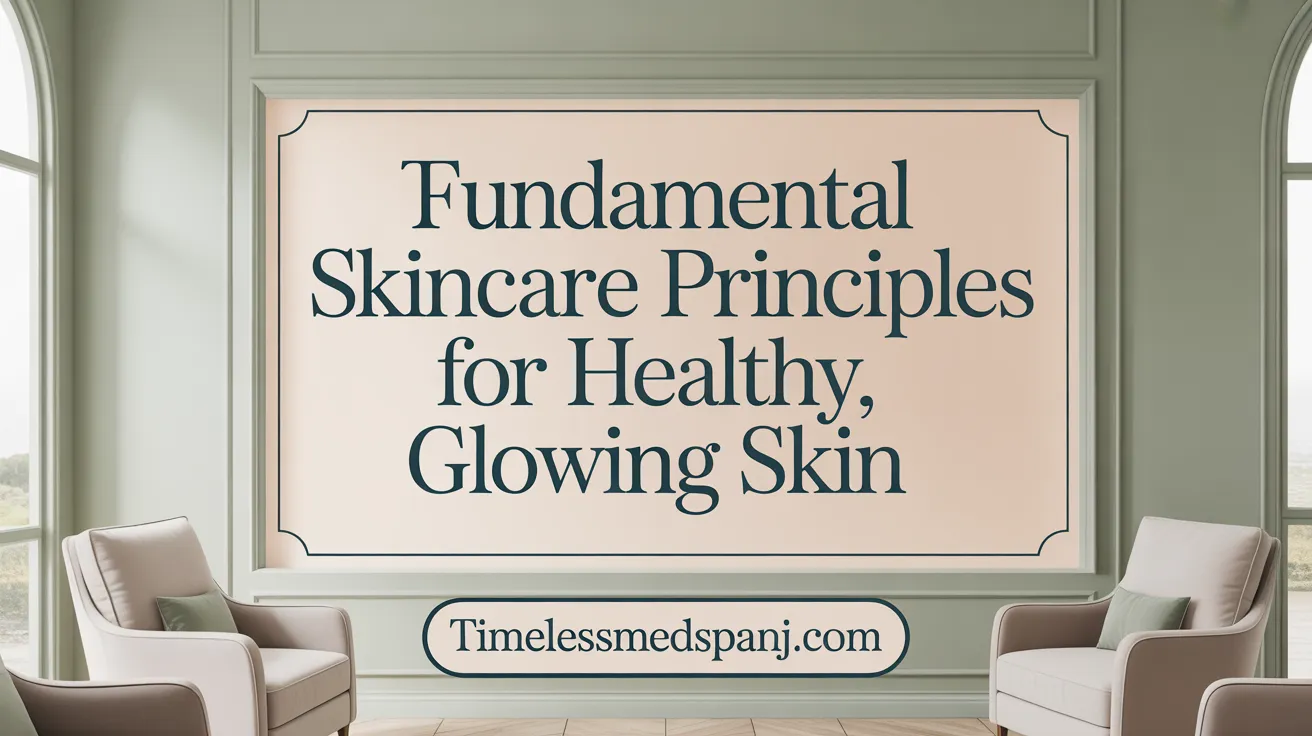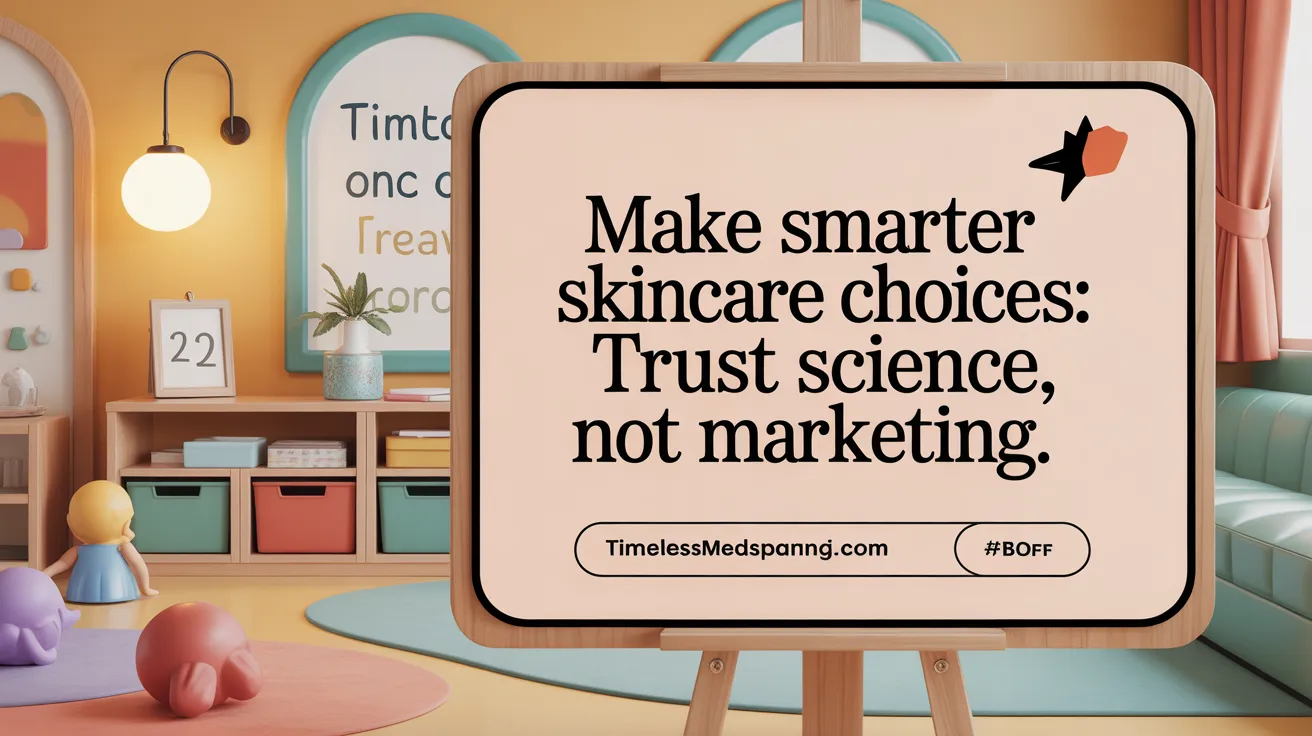Understanding Skincare: Beyond the Myths
In today’s beauty-driven world, skincare advice is abundant, but not all of it is rooted in science. From misconceptions about natural ingredients to myths around sunscreen and acne, misinformation can lead to ineffective or even harmful routines. This article unpacks common skincare myths, clarifies evidence-based practices, and arms readers with expert insights to build effective, healthy skincare habits tailored to individual needs.
The Core Principles of Effective Skincare

What is the number one rule of skincare?
The most important guideline in skincare is establishing and maintaining proper cleansing routines. Cleansing effectively removes makeup, dirt, and pollutants that accumulate on the skin throughout the day. Experts recommend gently washing your face at least once daily with lukewarm, not hot, water to avoid stripping natural oils.
For optimal results, use a gentle cleanser suited to your skin type, whether oily, dry, or sensitive. For those with oily skin, lightweight, non-comedogenic moisturizers are essential—even if your skin feels greasy—to prevent dehydration and reduce excess oil production.
Layering skincare products properly also enhances their benefits. The typical sequence starts with cleansing, followed by toning to restore pH balance, then applying targeted serums and treatments, and finally moisturizers and sunscreens. Broad-spectrum SPF products are vital every day, regardless of weather, since UV rays penetrate clouds and windows, causing premature aging and increasing skin cancer risks.
Ultimately, consistency in cleansing, protecting through sun protection, and nourishing with moisturizer builds a solid foundation for healthy skin. Gentle handling, regular routine, and protective measures create lasting skin health and help prevent many common concerns.
Debunking Common Skincare Myths with Science

What are some common skincare myths debunked by experts?
Many popular beliefs about skincare are actually myths that can mislead people from adopting healthy practices. For instance, a widespread myth is that natural ingredients are always safer and more effective. However, some natural substances can cause irritation or allergic reactions, especially in sensitive skin. The scientific approach stresses that effective ingredients—whether natural or synthetic—are backed by clinical evidence.
Another common misconception is that pore size can be permanently changed. In reality, pore size is largely determined by genetics. While topical products like salicylic acid and retinoids might temporarily minimize their appearance, true size remains unchanged. Consistent skincare can improve their look, but not alter anatomy.
Many believe that a tan signifies good health. In fact, tanning, whether from the sun or tanning beds, damages skin DNA, increases the risk of skin cancer, and accelerates skin aging. Even if the skin appears healthier, the dangers far outweigh any cosmetic benefits.
A popular stereotype also suggests that expensive skincare products are inherently better. This isn't true—many affordable brands contain proven active ingredients like retinoids, vitamin C, and glycolic acid that work just as well as high-end options. What matters most is the formulation and scientific validation.
Lastly, there's the myth that popping pimples helps clear the skin. In reality, doing so can push bacteria and pus deeper into the skin, leading to inflammation, infection, and scarring. Dermatologists recommend leaving pimples alone or seeking professional treatment, which is safer and more effective.
Scientifically Proven Ingredients That Deliver Results
 When it comes to skincare, not all ingredients are created equal. Scientific research has identified certain active components that genuinely improve skin health and appearance.
When it comes to skincare, not all ingredients are created equal. Scientific research has identified certain active components that genuinely improve skin health and appearance.
One of the most well-documented groups of ingredients are alpha hydroxy acids (AHAs) and beta hydroxy acids (BHAs). These acids have been clinically proven to treat a range of skin issues, including acne, hyperpigmentation, and early signs of aging. AHAs such as glycolic acid work by exfoliating the outer layer of dead skin cells, revealing a brighter, smoother surface. BHAs like salicylic acid penetrate deep into pores, helping to clear them and reduce breakouts.
Retinoids, a class of Vitamin A derivatives, are another cornerstone in anti-aging skincare. Supported by extensive scientific evidence, retinoids boost collagen production, which reduces the appearance of fine lines and wrinkles. Products like tretinoin (Retin-A) are proven to improve skin texture, firmness, and overall youthful appearance when used consistently.
Hydrating agents such as hyaluronic acid are essential for maintaining skin moisture. Supported by research, hyaluronic acid molecules attract water into the skin, enhancing flexibility and reducing dryness. This not only improves skin’s appearance but also supports barrier function, which is vital for overall skin health.
The role of evidence-based formulations in the effectiveness of skincare products cannot be overstated. When ingredients are backed by scientific studies, they are more reliable in delivering promised results. This approach involves understanding skin physiology and how specific ingredients interact at the cellular level to promote collagen synthesis, improve elasticity, and combat aging.
In summary, effective skincare depends on the right active ingredients supported by solid scientific data. Products containing AHAs, BHAs, retinoids, and hydrating compounds like hyaluronic acid have been demonstrated to improve skin quality and aging signs. Always look for formulations supported by clinical research for proven results.
| Ingredient Type | Benefits | Supported By |
|---|---|---|
| AHAs (e.g., glycolic) | Exfoliation, brightening | Scientific studies confirm efficacy |
| BHAs (e.g., salicylic) | Deep pore cleansing, acne treatment | Proven to treat breakouts |
| Retinoids (e.g., tretinoin) | Wrinkle reduction, collagen boost | Extensive research backing |
| Hydrators (e.g., hyaluronic acid) | Moisturizing, skin plumping | Supported by multiple trials |
Choosing skincare with proven ingredients ensures you invest in products that truly work, supported by science rather than marketing claims.
Healthy Skin Habits to Prevent Common Conditions

What are some effective ways to promote healthy skin habits and prevent common skin conditions?
Maintaining healthy skin involves a combination of consistent skincare routines and lifestyle choices. One of the most fundamental practices is ensuring adequate hydration. Drinking enough water helps keep the skin moisturized from within, which is essential even for oily skin types. Pairing water intake with suitable moisturizers—preferably lightweight and non-comedogenic—helps maintain the skin’s barrier and prevents dryness.
Protection from sun damage is crucial regardless of weather or the season. Applying a broad-spectrum sunscreen with at least SPF 30 daily shields the skin from harmful ultraviolet (UV) rays, which can penetrate clouds and windows. Overexposure to UV radiation leads to premature aging and increases skin cancer risk. Wearing protective clothing, seeking shade during peak hours, and reapplying sunscreen every two hours enhances this protection.
Gently cleansing the skin is equally important. Hot water and harsh soaps can strip natural oils, irritate the skin, and worsen conditions like acne or dermatitis. Using warm water and mild cleansers suited to your skin type helps remove dirt and excess oils without damaging the skin barrier. Following cleansing with an immediate application of moisturizer locks in hydration and supports skin health.
Lifestyle factors like stress management, quality sleep, and a balanced diet contribute significantly to skin wellness. Consuming a variety of fruits and vegetables provides antioxidants that combat free radicals, slowing down aging signs. Avoiding smoking and limiting alcohol intake reduces oxidative stress and inflammation, promoting clearer, healthier skin.
Additionally, avoiding overly aggressive practices such as over-washing or scrubbing can prevent microtears and irritation. Regularly performing skin self-exams and consulting dermatologists for persistent or unusual skin changes ensures early detection and treatment of conditions like eczema, psoriasis, or skin cancers.
In essence, a holistic approach combining proper skincare, sun protection, a healthy lifestyle, and professional advice creates an optimal environment for skin to stay healthy and resilient.
Making Informed Skincare Choices: Separating Facts from Marketing

How can consumers differentiate facts from myths in skincare to make informed decisions?
To navigate the world of skincare effectively, consumers should focus on scientific evidence and professional advice rather than marketing messages or anecdotal claims. Trustworthy sources such as dermatologists, medical organizations, and peer-reviewed studies provide reliable insights into ingredient safety and efficacy.
Checking for peer-reviewed research or clinical trials can reveal whether a product or ingredient is genuinely beneficial. Natural ingredients, for example, are not inherently safer or more effective than synthetic ones. Some natural substances can cause irritation or allergic reactions, especially in sensitive skin.
Understanding the importance of formulation is essential. Products containing proven ingredients like retinoids, hyaluronic acid, or salicylic acid have established benefits supported by scientific research.
Consumers should also be aware that high costs do not guarantee better results. Many affordable products contain effective active ingredients and can deliver excellent skincare outcomes.
Finally, avoiding common myths such as the idea that pores can be permanently shrunk or that natural ingredients are always superior helps in making smarter choices. Consistent, tailored skincare routines based on individual skin needs, rather than marketing hype, lead to healthier skin.
For further guidance on verifying skincare claims, a quick online search with the query "how to verify skincare product claims and effectiveness" can provide additional resources and tips to assist consumers in making evidence-based decisions.
Empower Your Skin with Knowledge and Science
Navigating the vast world of skincare can be daunting, especially when myths and marketed promises cloud judgment. By grounding your routine in scientific evidence and expert advice—prioritizing cleansing, hydration, sun protection, and gentle care—you set yourself on a path toward healthier skin. Remember, effective skincare is less about expensive products or trending natural labels and more about ingredients proven to work, consistent habits, and informed decisions. Embrace patience, consult professionals, and enjoy the confidence that comes with nurturing your skin the right way.
References
- Debunking Skin Care Myths | DCSI Dermatology South FL
- Don't fall for these skin myths - Harvard Health
- 5 Common Skin Care Myths Debunked - Dermatology Clinic of Idaho
- The Top 10 Skin Care Myths Debunked by a Dermatologist
- 10 Skincare Myths Debunked: Separating Fact from Fiction
- Debunking Skincare Myths: Separating Fact from Fiction
- March Madness: Skin Care Myths Busted - Live Young Wellness Spa
